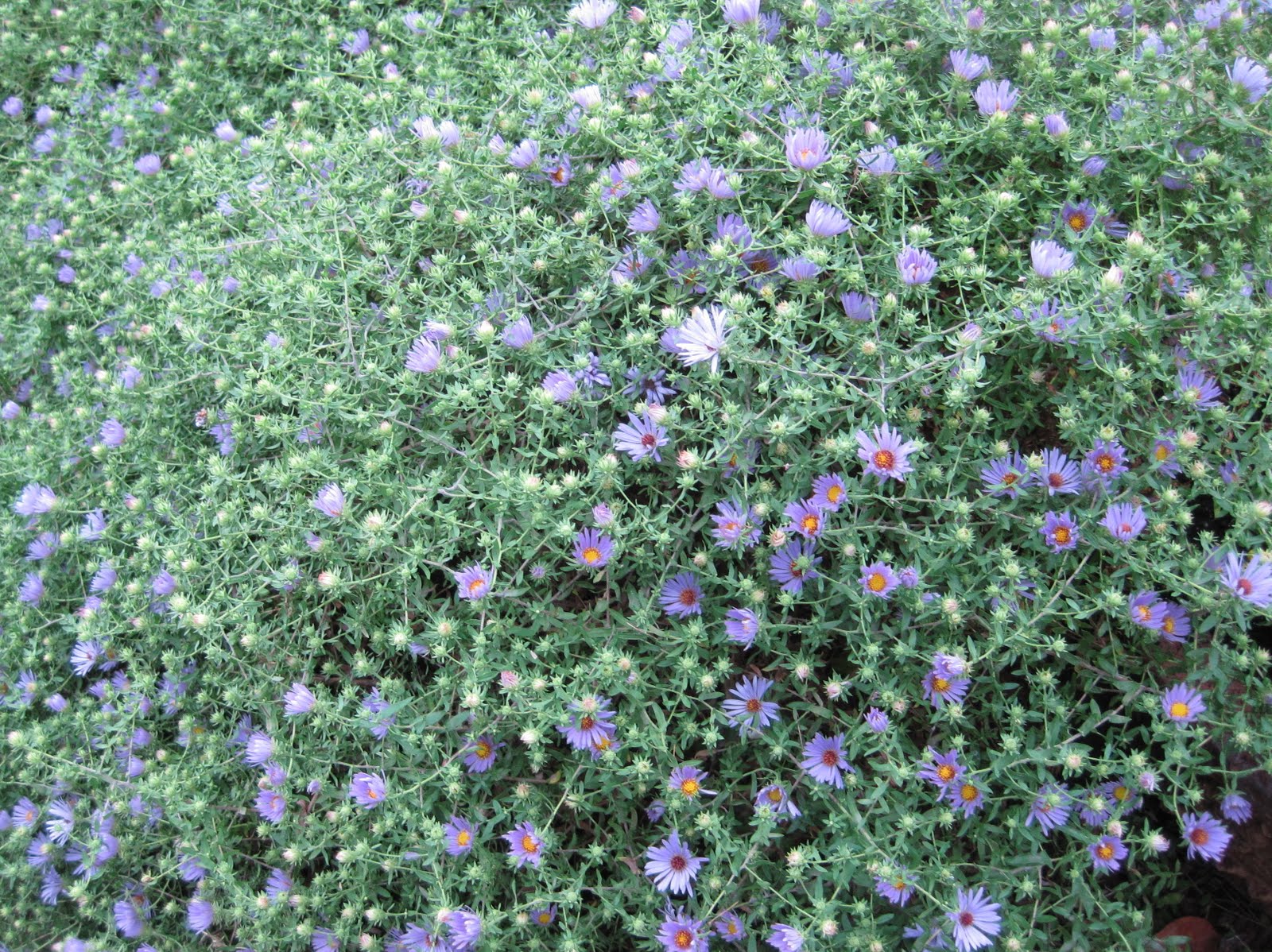 |
| Symphyotrichum oblongifolium ‘October Skies’ |
The laws of nature can not be broken!
You must learn to accept and abide by Mother Nature’s laws to achieve hortus sanus in your garden, or you will find yourself in a state of hortus insanus.
You can’t make water flow uphill.
You can’t specify the amount of rain and snow you want to fall on your garden.
You can’t control the speed of the wind.
You can’t plant a tropical rain forest in a zone 5b garden and expect it to overwinter outside.
You can try to break the laws of nature and you might actually feel like you’ve gotten away with it.
But really, have you gotten away with it?
Do you really want to go through your garden constantly looking over your shoulder to see if you’ve been caught breaking the law? What did it cost you to go against Mother Nature’s laws, anyway?
And do you really, truly like the end result of your law breaking ways in your garden?
No doubt if you made water flow uphill or did something to control the rain in your garden or stop the wind or planted plants that just aren’t suitable for what Mother Nature has decided are the rules for your area, you’ve created for yourself one big, expensive, gigantic, overbearing, time consuming garden to maintain. It might even be pretty.
But isn’t it better to just accept the laws and rules of Mother Nature and work within them? Of course it is. And your garden will be healthier for it, as will you.
So if you’ve broken the laws of Mother Nature, or tried to bend her rules, go out now to make amends and set things right. You know it is the right thing to do for hortus sanus, a healthy garden.


You're so right, gardening with the flow, not pretending you have different soil, more sun, no frosts, whatever, makes for a much happier garden – and gardener!
I love your hortus sanus "lectures" and your overall commonsense approach to gardening. As a habitat gardener, I am ever mindful of Mother Nature's laws and always try to abide by them. It makes for a clean conscience and sound sleep at night.
*bow*
I try to plant with what the area will take. We live between Denver and Boulder, dry and high. We plant for the bees, too. Lots of agastache, lavender, Russian sage and achillea. A ton of other xeric plants, too, but those four are the anchor.
I've learned to compost for the veggie garden and have become what my family calls compost police with anything I see going in the trash but should go in the bin….
Part of what initially attracted me to Permaculture was the notion of minimal resource and enrgy use: put your compost heap near where you'll use it, and your herbs close to the kitchen door.
Or how low can the temperature go before I bring the tropical potted plants inside? At 41 degrees I know I am pushing their tender hearts.